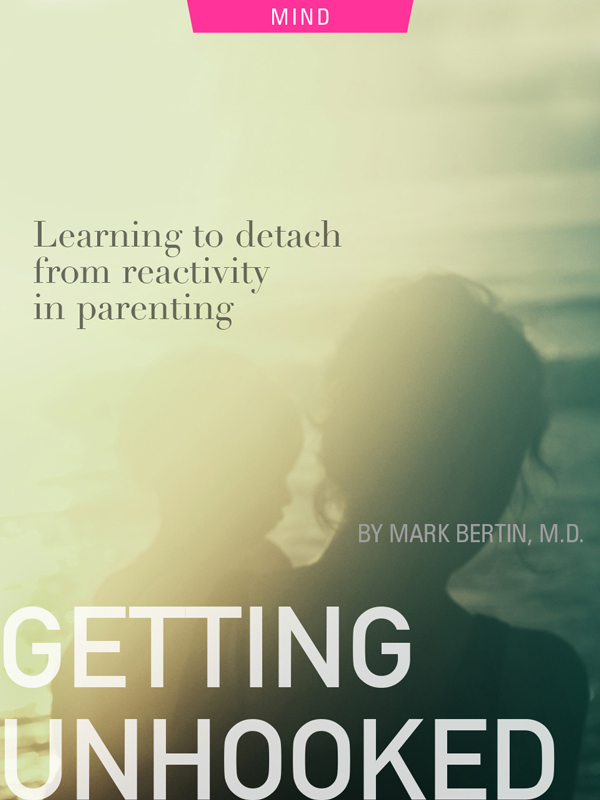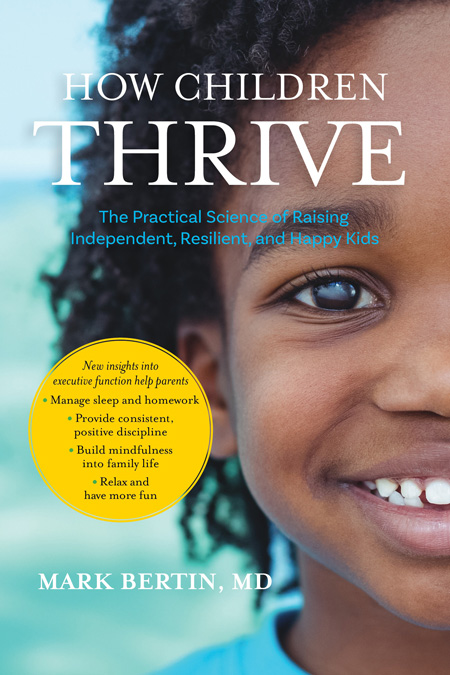Getting ‘hooked’ by reactivity in parenting and old habits is inevitable; what we do with those emotions is optional
—
We all know what it feels like to get hooked by something in life. It happens every day. Little things and big things — a look, a thought, an experience — grab us viscerally. A tear in our jacket, a tone of voice, a failing grade, an unexpected rainstorm. The hook is a burning, restless urge that craves relief because we feel attacked, disappointed, uncertain, or confused.
Getting hooked, we easily lose track of our best intentions. A meticulous sleep plan collapses as a visceral sensation takes hold, and we leap into reaction. We finally go downstairs to spend a moment with our spouse and then hear a child tiptoe down the stairwell, for the third night in a row. Without reflection, we yell, “Get up those stairs! I told you no more of this!” Or instead, we’re having a calm morning, but it’s time for the bus. We ask our daughter to get her backpack, and she responds in that exact tone, “Why don’t you get it?” It digs to the root of our brain, it seems, and then… Let the battle commence!
Parenting can seem like one long experience of feeling hooked.
Your worry and uncertainty are real. Without them you’d be numb. You’re a parent: Oh no, he wasn’t invited to the party. It feels miserable for you and for him and then you’re on the phone nagging that other parent in a way you know you’ll regret in an hour. Unmanaged, the hook pulls you to your verge — off balance and tugged by an aching desire for relief.
When we get hooked, what happens next? Most often, an immediate, impulsive reaction.
Then regretting that choice, quite often we’re hooked all over again — I can’t believe I did that— and then we buy an excessive gift or over-explain or break into the cookie jar.
An entirely new way of living starts when we practice dropping the hook, acknowledging when we feel off, and then aiming as best as we’re able to let things be: He’s got to eat better, but there’s nothing to be done about it tonight. We may even notice in someone else, Wow, he’s totally hooked.No point in saying anything more now; let’s come back to this later. It’s not a call to ignore anything about our lives or force ourselves to feel okay. It’s quite the opposite — an opportunity to realize that sometimes we’re feeling jittery and lacking a better option, but we’re okay with that uncomfortable fact.
Often it feels as if the hook and its reaction are the same thing: When I’m hungry I get irritable and must eat right now (even if that means grabbing whatever crap is nearby instead of waiting a few minutes). When I’m scared about the future, I ruminate until I come up with a solid plan (even if I already have one and am running myself in circles). Yet that visceral feeling of being hooked and what we do about it are more nuanced — there is a sensation and then an urge for relief. And then there is that urge and what we choose to do with it.
This type of intentional pause doesn’t mean becoming passive. It’s creating a space to act wisely. For example, say you’re embroiled in yet another argument over bedtime and, exhausted yourself, feel the urge to capitulate: Fine, go read in my bed (again). Dropping the hook, settling, you may find the space to pause and stick to the plan: I hate the fact that we’re still wrestling over bedtime, and I want my own rest, but you’ve got to go back to your own room.Noticing yourself hooked lets you act decisively as often as electing not to act at all.
Working with the hook is immensely challenging and does not mean we’re suddenly okay with suffering.
Getting hooked is inevitable; what we do about it is not.
Without awareness, we snap at a child, so they snap back, and we end up in a ritualized sparring match. We feel a desperate need to escape, so we shut down. We fall back on more troublesome habits, like drinking or fighting. These habitual reactions quite often grant, at best, a moment of respite while whatever triggers us remains. We find temporary relief but complicate our lives instead of finding any true resolution.
Sometimes there is nothing more useful than allowing a situation to run its course without adding anything: I’m hooked, and what makes most sense is to be patient with my distress while I get on with my day instead of having that same conversation once again.Instead of reflexively trying to fix how we feel, when we recognize that we’ve been hooked, we can practice pausing. Relax as best as we can. Refrain, even if for a moment, from falling back on habitual reactions. And then start over when we get caught up in it again.
Parenting will often lead us to feel unsettled, since so much is out of our control. For example, if a child has a learning disability, you may be getting him tutoring, and he’s in a good school, and at the same time, there’s no way of knowing for sure what’s going to happen. So you feel somewhat concerned indefinitely, which is natural. If you continually give in to the urge for certainty, you may continually fall back on over-planning, ruminating, or numbing yourself in some avoidant way, none of which brings anything productive to your family life.
If you have an actual itch, it’s usually okay to scratch, and when there’s something useful to be done for your children or yourself, go for it. With other itches — like being annoyed that bedtime has gotten off track or uncertain what to say next during a disagreement — your best option may be to acknowledge the hook and then firmly pause. Make a joke, let it slide, or flat out acknowledge aloud exactly what’s going on: “I’m taking a breather, because I’m seriously rattled.” Settle yourself and even for a brief moment, let go.
There’s some discomfort in life that cannot be touched. It’s just there.
It makes utter sense that we feel triggered by anxiety around our children or plenty of other aspects of life that don’t feel comfortable. In any situation, whatever we do (or choose not to do) next could make it better, but could also drive the hook deeper. Acknowledging our discomfort, we may find it best to live with how we feel until a better option becomes clear.
Since it’s natural to get hooked, we should not blame ourselves or expect to move beyond ever feeling rattled. There’s a problem, there’s getting hooked by the problem, and there’s how we react next. There’s fear, the visceral response to fear, and how we respond to fear. There’s the uncertainty of parenting, and how it twists inside us, and most practically there is what we do when uncertain.
We can choose to work on letting go of the habitual ways we react when hooked because, in the end, being reactive is kind of a silly way for the mind to behave. We know better, and cannot always help ourselves anyway. Sometimes we can find peace, and often more happiness, noticing the inevitable discomfort while letting it be.
Learning to pause when we get hooked may break the reaction and get us — and our child — off the hook.
—
PRACTICE: Getting Unhooked
When you notice the hook and an urge to react, try this 4 Rs practice (from Pema Chodron’s Practicing Peace in Times of War). Whatever sets you off, choose not to grab onto the hook. Recognize what you feel, and let things be for a moment.
- Recognize the feeling of being hooked.
- Refrain, for a moment, from doing whatever you typically do. Pause, take a few breaths, and let things alone before taking a next step.
- Relax, letting go as best as you’re able of any sense of constriction or tension. If you see something useful to be done — go for it. If not, practice letting things be instead of falling back on reactive, less productive habits.
- Resolve to keep working on it. Old habits change slowly, not all at once.
You may also enjoy reading The Complex Rules for Raising Adult Children: From Protector to Guide by Judy Marano

